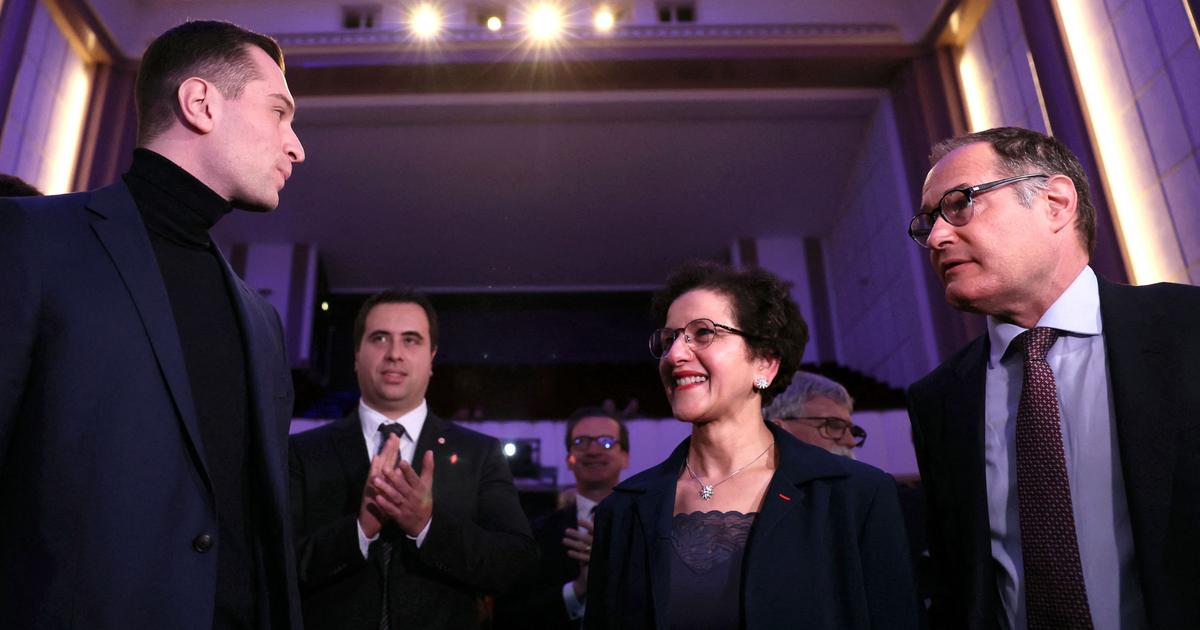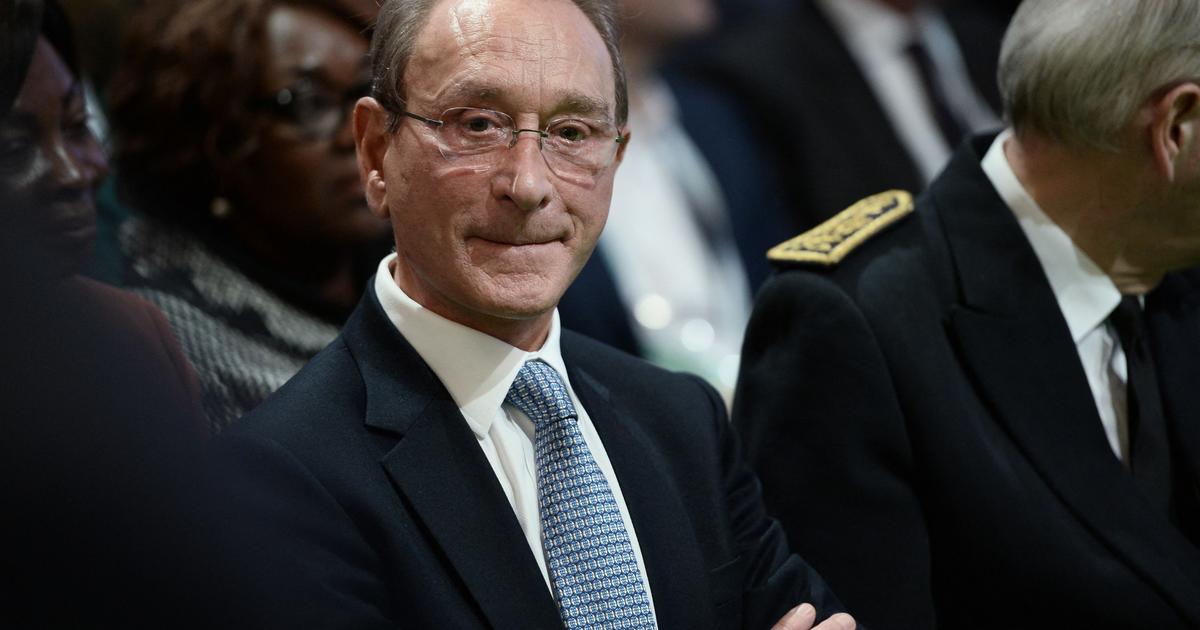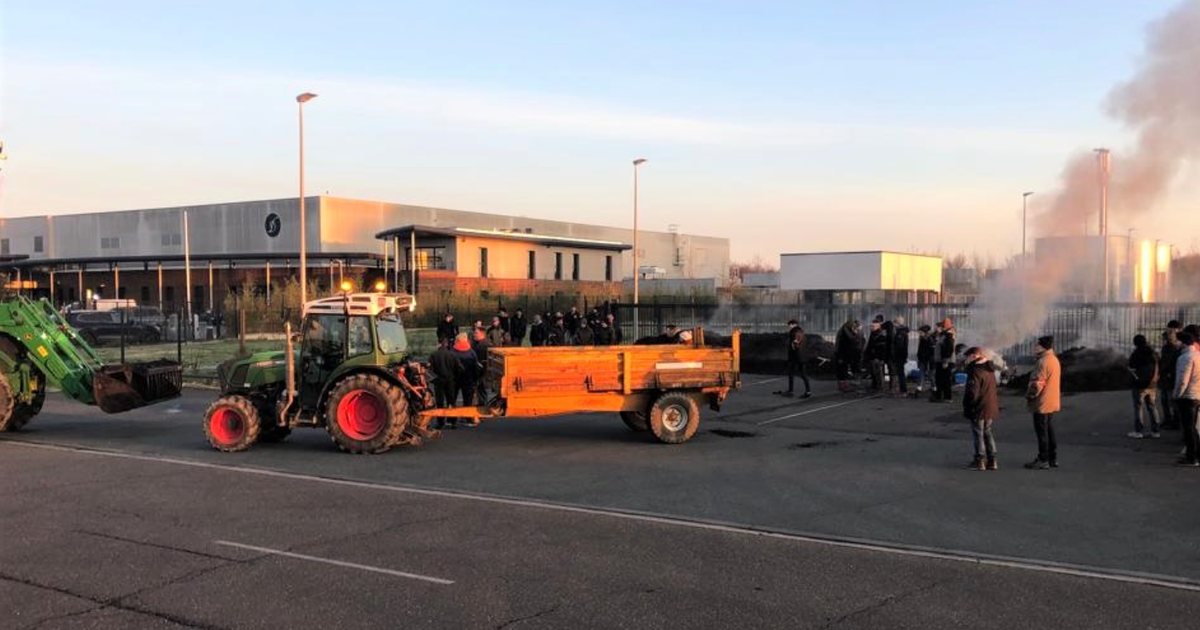THE QUESTION.
Friday evening, after a Franco-German defense and security council, Emmanuel Macron made a plea in favor of the anti-Covid vaccine supply strategy led by the European Commission.
And this, while Brussels is under fire from criticism because of delays in deliveries from pharmaceutical laboratories.
"I fully support the European approach that we have had"
, declared the French Head of State during a joint press conference with Chancellor Angela Merkel.
“What would we say today if France and Germany were in competition on vaccines?
, asked Emmanuel Macron.
It would be counterproductive ”
.
He thus recalled that the European strategy had consisted in buying vaccines from different technologies, without suspecting that messenger RNA - which gave birth to the first vaccines, those of Pfizer-BioNTech and Moderna - would have as much of success.
If the Head of State recognized that
"what we must prepare now are acquisitions and additional production of vaccines on our soil"
, he declared that
"Europe is the place where we bought the more vaccines, the more secure the more doses ”
.
Was the European Commission the biggest buyer of vaccines in the world?
CHECKS.
When we add up all the contracts concluded, we arrive at 2.3 billion doses pre-ordered by the Commission in recent months from six laboratories.
However, these purchases are not closed.
The 2.3 billion doses include an extension signed in early January by Brussels from Pfizer-BioNTech for 300 million additional doses (i.e. 600 million doses in total ordered from the American-German duo).
The Commission has also held preliminary discussions with the American biotech Novavax relating to 100 million doses.
Finally, it should finalize in the coming days its negotiations with the French biotech Valneva which relate to 60 million doses.
It would be the eighth vaccine bought by Brussels.
But let's go back a few months.
While the first discussions with pharmaceutical laboratories concerning grouped purchases of vaccines were conducted in June by France, Germany, Italy and the Netherlands, Brussels then took over.
The first contract was signed at the end of August 2020 with AstraZeneca, followed by the one with Sanofi (mid-September) and with Johnson & Johnson (early October).
In total, six contracts have been signed to date for some 2.15 billion euros.
Several orders have still not been honored by the laboratories.
Or because the vaccine approval applications have been submitted but have not yet been validated by the European Medicines Agency (EMA).
This is the case with that of Janssen (Johnson & Johnson).
Either because clinical trials are still ongoing.
This is the case, in the expected order of arrival, for vaccines from Curevac and Sanofi.
If we take into account the volumes purchased, the United States is second behind Europe, with 1.2 billion doses ordered.
Including purchase options, this number is close to 2 billion doses (200 million additional for J&J and 500 million for Sanofi).
Barely arrived at the helm, Joe Biden had signed an extension of 200 million doses, equally divided between Moderna and Pfizer-BioNTech, in order to honor his promise to vaccinate 100 million Americans during his first hundred days in the White House. .
The vaccines from these two laboratories are the only two approved to date in the United States.
As for that of Johnson & Johnson (100 million doses ordered), currently examined by the American health authorities (FDA), it could be the third authorized in the country, knowing that it has the double advantage of being administered in one single dose and stored in a conventional refrigerator.
AstraZeneca's (300 million doses), which is the subject of additional clinical trials at the request of the FDA, should not be available in the United States before April.
The other cases concern Novavax (100 million doses) and Sanofi (100 million doses).
If Europe and the United States are the two largest buyers of vaccines in terms of number of doses, the ranking is different when we take into account the number of vaccines compared to the number of inhabitants of each country.
According to a ranking made in early December by the Bloomberg agency, Canada, Great Britain and Australia then came first, ahead of European states which were ranked individually.
The purchases of these countries covered, in fact, several times the needs of their populations.
Germany was 13th and France 14th.
Far behind, the United States were in 32nd place, wedged between Chile (31st) and Japan (33rd).
The fact remains that the American administration is the one which has by far invested the most, not only in vaccine orders but also upstream, in R&D and in production.
That is more than 10 billion dollars injected in total by Donald Trump's United States, through Operation Warp Speed.
Of course, the European Commission has negotiated lower prices than the United States with pharmaceutical companies (except for the Moderna vaccine).
But all the same, the financial effort is incomparable between the United States and the Old Continent.
"Europe confined itself to the role of buyer when the United States chose to invest in an industrial strategy in order to guarantee their supplies"
, explains a laboratory boss.
If the boss of the WHO, Tedros Adhanom Ghebreyesus, as well as most NGOs deplore that Europe, the United States and other rich countries have taken over a large part of the world production of vaccines, the Covax organization tries to restore this imbalance for the benefit of the poorest countries.
Covax is no ordinary vaccine “buyer”.
This mechanism was created in spring 2020 by the WHO, the Vaccine Alliance (Gavi) and the European Commission.
It aims to "
accelerate the development and manufacture of vaccines against COVID-19 and ensure fair and equitable access to them, on a global scale
".
Nearly 2 billion doses should thus be distributed by the end of 2021 thanks to contributions from around 100 donor countries as well as agreements signed with several laboratories (AstraZeneca, Johnson & Johnson, Sanofi, Pfizer-BioNTech, etc. .).








